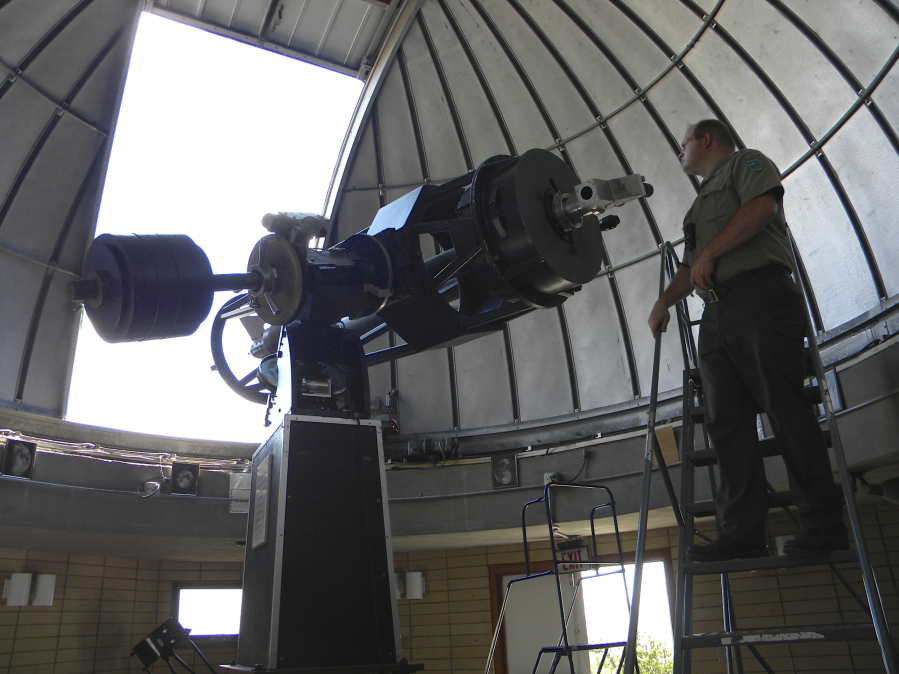Goldendale has been a solar eclipse crossroads during the last 99 years.
The 1918 eclipse arrived on the Washington Coast at Grays Harbor and went through Goldendale on its path to Florida.
The 1979 total eclipse was an overcast dud in Vancouver, as we reported in advance of the Aug. 21 eclipse. But the ’79 eclipse was a total hit at the Goldendale Observatory.
Throw in the Great American Eclipse three weeks ago, which was just short of totality in Southwest Washington, and “Goldendale was in a sort of ‘X marks the spot’ for three eclipses,” said Troy Carpenter, administrator at Goldendale Observatory State Park.
It isn’t just astro-tastic spectacles that bring people to Goldendale. It also attracts some people who are looking for their personal star. Some observatory visitors have bought names of stars or received them as presents and want to take a closer look. (Prices at one online company range from about $40 to $100.)
“It’s something we begrudgingly allow,” Carpenter said in an email message. “People request these things roughly every two months, and yes, they are always hard to find.
“They tend to be stars of extraordinarily low magnitude and the write-ups often fail to adequately describe their spectral class or other characteristics, making them difficult or impossible to confirm in a telescope,” Carpenter said.
“More than once we have failed to locate a star and humored our guests by pointing out one in the general location indicated by their documents.”
Double dealing
There are other issues. The International Astronomical Union, which is charged with standardizing names of celestial objects and features, “dissociates itself from the commercial practice of ‘selling’ fictitious star names,” according to www.iau.org. (They’re the folks who decreed that Pluto is not a planet.)
“Services which name stars are not entering these objects into officially recognized scientific catalogs, so there’s nothing to prevent others from ‘double-selling’ a particular star,” Carpenter said.
“Even worse, stars are commonly sold to people who will not be able to view them without long distance travel; just a few months ago, someone wanted to look at a ‘purchased’ star in Tucana, a constellation only visible in the Southern Hemisphere.”
Off Beat lets members of The Columbian news team step back from our newspaper beats to write the story behind the story, fill in the story or just tell a story.




